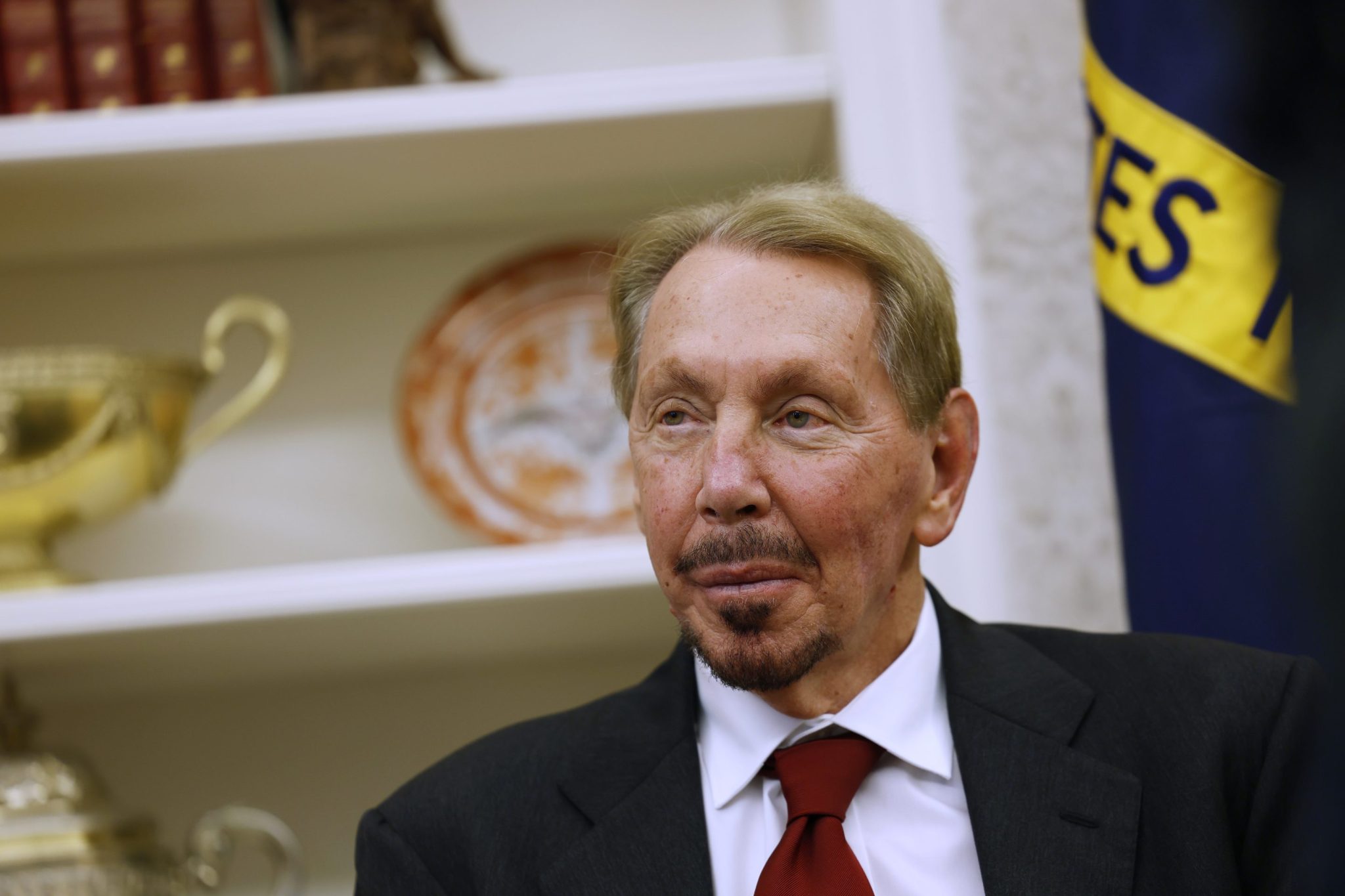That meant a sizable gain for Ellison’s net worth, which is heavily tied to the company.
The 81-year-old entrepreneur co-founder, who currently owns more than 40% of Oracle, subsequently enjoyed a $101 billion surge in wealth overnight, to $393 billion—placing him ahead of Musk’s $385 billion fortune. He joined the likes of Amazon executive chairman Jeff Bezos and LVMH’s Bernard Arnault as the few members of the ultra-rich club to surpass the Tesla CEO since he took the top spot back in 2021.
But Ellison’s ranking as the world’s richest person was short-lived: His estimated net worth fell by $34 billion in the two days following Oracle’s stock surge, according to Bloomberg’s index. Although he has made some wealth gains since, he still stands at a net loss of $23 billion from his high last Wednesday.
And J. Bradford DeLong, a U.C. Berkeley economist, tells Fortune that the sharp downfall was triggered by “second thoughts” around Oracle’s cloud deal with OpenAI.
‘Second thoughts’ about Oracle’s involvement with AI
On Wednesday last week, the Wall Street Journal reported that OpenAI had signed a contract with Oracle to purchase $300 billion in computing power over the next five years. It’s one of the largest cloud contracts ever signed—and the markets went crazy. DeLong says that Oracle would profit heavily from the deal, regardless of whether OpenAI becomes the leading AI business-consumer tech company.
“Ellison’s surge is because [of] the market’s perception of Oracle,” DeLong explains, adding that Ellison’s personal stake in the deal helped shift the company from “being irrelevant, to it being a key participant in OpenAI’s forthcoming construction and operation of data centers.”
But then came mounting concerns that the deal could lead to an “AI bubble.” Ellison was able to secure the OpenAI deal thanks to his budding business relationship with Nvidia CEO Jensen Huang, which allowed Oracle to buy a large amount of state-of-the-art GPUs, setting itself up as a key player in the AI industry. Yet analysts quickly warned of the financial risk—Oracle hasn’t proven itself as a top cloud provider, and OpenAI’s $12 billion annualized revenue pales in comparison to the $300 billion deal. Oracle is relying heavily on one customer who may not be able to afford or fully use what they’ve committed to; and since these obligations are promises for future services not yet delivered, the AI company could potentially delay, change, or cancel parts of the deal.
DeLong says it raises the question of Oracle’s entanglement with OpenAI—how reliable the numbers are, what risks it entails, and how much of a game-changer the deal actually is. But still, he notes that many are optimistic, and those who are intrigued can cash in on the opportunity.
“The subsequent decline came from second thoughts about the magnitude of Oracle’s involvement,” DeLong continues.
“Still, if you are optimistic about OpenAI—and lots of people are very optimistic—buying Oracle stock is the best path available to you to invest in something that will succeed if OpenAI succeeds, because it is now clear that if OpenAI does very well, Oracle will do well.”
The puzzle behind Musk’s simultaneous $35 billion surge in net worth
While Ellison’s net worth plummeted, Musk enjoyed being catapulted back to the top of the Bloomberg Billionaires Index with a $35 billion gain between September 10 and 12. However, why he experienced the wealth surge is less clear than Ellison’s toppling.
DeLong says that Musk’s company Tesla hasn’t been doing anything special as of late that would cause the stock to sell for more. Instead, it could be tied to Tesla’s annual shareholding meeting this November; investors are optimistic that Tesla’s CEO will “make some good news” for the company before this fall’s vote.
“It seems more like ‘we can make money by frontrunning the Big Boys as they manipulate stock prices’ is driving Tesla’s short-run asset valuation here—an internet-driven phenomenon,” DeLong explains. “Options traders are buying out-of-the-money calls on Tesla out of a belief that Elon Musk wants its stock price high in November.”
“Such positive-feedback automatic demand by hedgers produces runups like we have seen in Tesla, that endure for a while.”


